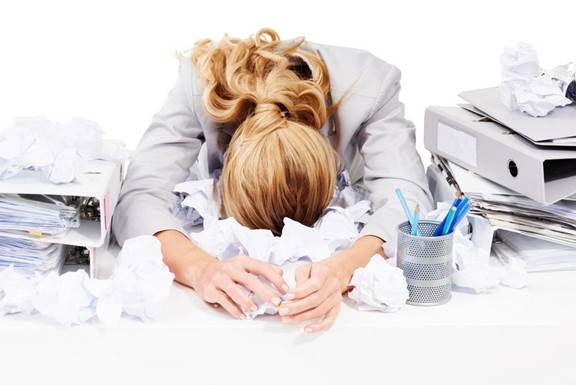If the buzz of life is eating up your
quality time, it’s time to get busy relaxing. Katherine B. has low-key
solutions for high-energy people
Think back to the last time you truly
relaxed. A time when you weren’t rushing from one activity to the next, with
101 thoughts racing through your mind and a to-do list as long as your arm.
Hard to recall, isn’t it? ‘Nowadays, we are grabbing as much of life as we can
get our hands on,’ says Donna Hubbard of Be Dynamic Coaching (bedynamic.co.uk).
‘We are constantly looking to do, achieve and be more, so running from one
commitment to another has become the norm.’
Research has found that we don’t sleep enough,
we eat on the go more than we do at home, and we’re not spending enough time
with the people we love - and experts reckon these habits can affect your
health in myriad ways. It’s time to stop, take a breather and acknowledge the
importance of downtime.
Worker bees
Between juggling a demanding career and
hectic home life, it’s little wonder that downtime is the first luxury to go.
‘Thanks to technology, the boundary between life at work and life outside work
has merged,’ says Gina Hayden, director of Sphere Consulting
(sphereconsulting.org). ‘Emails and phone calls come in at all hours of the
day, night and weekend and, even worse, we’re expected to respond to them
immediately!’ We face huge pressure to be constantly available, and our
reliance on our many devices is more profound than ever. ‘How many times have
you sent a work email while waiting for a fitness class to start, or fielded a
business call when out running with your phone?’ says Donna.

We
face huge pressure to be constantly available, and our reliance on our many
devices is more profound than ever.
Demands in the workplace are the number one
culprit as we’re expected to work longer hours and meet more targets. ‘The
recession has increased our fear of unemployment,’ says life and confidence coach
Georgina Elliott (thelondonconfidencecoach.com). A study by the TUC found that
one in five workers is regularly putting in seven hours of unpaid overtime
every week. That’s almost a full day of work! But research from Harvard
Business School has shown that working harder and longer doesn’t necessarily
mean getting more done - in fact, it was found that downtime not only benefits
workers, it also benefits their employer due to increased productivity, greater
job satisfaction, improved communication, increased learning and
self-development and more respect for colleagues.

Demands
in the workplace are the number one culprit as we’re expected to work longer
hours and meet more targets.
The other culprit? Your daily commute. On
average, people in Britain spend 32 hours a year stuck in traffic. That’s 16
movies that could have been watched, or 21 leisurely meals that could have been
savored... ‘It’s not just that the time spent in traffic eats into downtime,’
says George Broadbent from Life Coach Directory (Iifecoach-directory.org.uk),
‘it’s that the frustration of rush hour and other drivers causes stress levels
to rise.’
What’s the sting?
Stress is one of the biggest side effects
of a life without relaxation. And too much stress adds up to a severe dip in wellbeing
- both mentally and physically. Stress contributes to headaches, high blood
pressure, heart problems, diabetes, skin conditions, asthma, arthritis,
depression, anxiety and insomnia. It can also speed the ageing process.
‘Increased stress leads to a depleted immune system and a higher risk of
illness,’ says Georgina. When you’re stressed, your body produces cortisol,
suppressing other essential functions such as digestion and growth. ‘Cortisol
also encourages you to reach for sugary foods,’ adds Donna, ‘so your diet
becomes unhealthy and your health is sabotaged.’

Stress
contributes to headaches, high blood pressure, heart problems, diabetes, skin
conditions, asthma, arthritis, depression, anxiety and insomnia.
Feeling frazzled can also change your
outlook on life. If we don’t meet the challenges we face, says Donna, ‘we can
become dominated by negative thinking.’ This can have a detrimental effect on
self-perception. ‘It’s all too easy to buy into the idea that we must be a
“failure” or “not have what it takes” to cope,’ she warns.
While stress take its toll on you, it can
also affect those around you. ‘Stress often leaves people tired, frustrated and
drained of energy,’ explains George. ‘As a result, they take their emotions out
on those closest to them.’
Smell the flowers

‘It’ll
allow your mind and body to repair, refresh and rejuvenate,’
The answer? Don’t see downtime as a luxury
- treat it as an integral part of life. ‘It’ll allow your mind and body to
repair, refresh and rejuvenate,’ explains personal development coach Anita
Dhanjal (simplycoachingyou.com). The benefits that you’ll reap are amazing:
increased productivity, less stress, reduced health risks and the big one - a
genuine work/life balance. ‘Making time to relax will make you more productive
and healthy, which results in a more fulfilled life,’ says Anita.